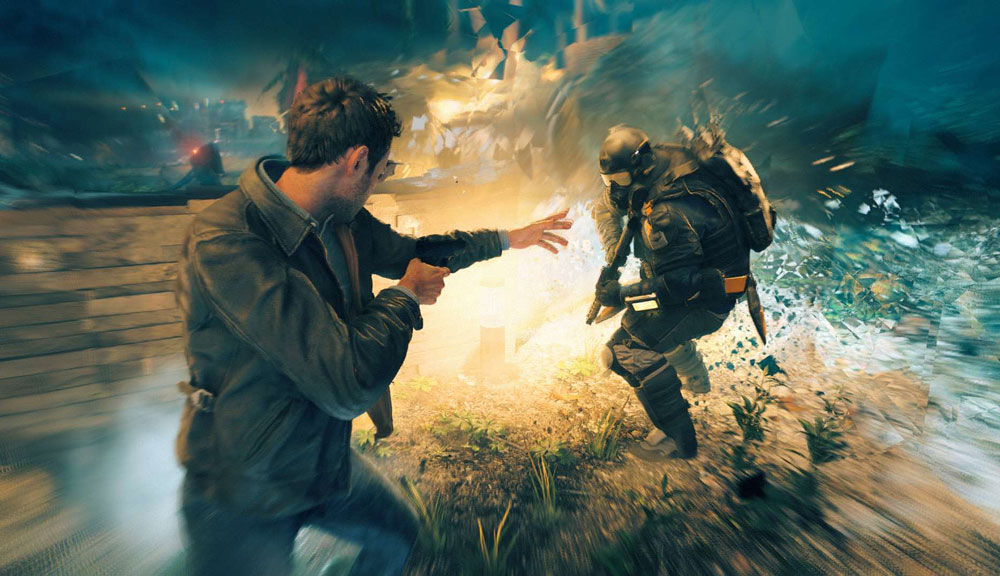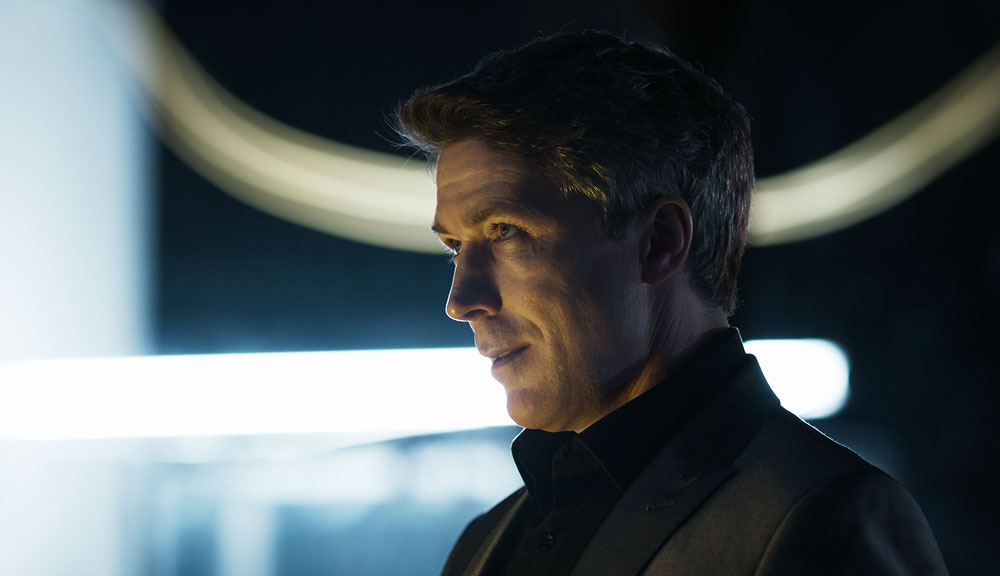“Quantum Break” is a flawed but enjoyable slice of hybrid entertainment

We don’t cover video games on this site as much as we used to, but it’s difficult to ignore a title like “Quantum Break,” which was originally teased during the reveal of the Xbox One back in 2013. That’s because it’s unlike anything you’ve ever played before – a uniquely immersive experience that’s one part video game, one part live-action TV series. But to fully understand how the merging of these two mediums works, you first need to know what the game is about.
Set in a fictional Northeastern town that’s been overtaken by an enigmatic corporation known as Monarch Solutions, the story follows Jack Joyce (Shawn Ashmore), who returns home after years of trying to escape his past when he receives a cryptic message from his friend Paul Serene (Aiden Gillen) asking him to meet at Riverport University. It turns out that Paul has been secretly building a time machine, and with his investors threatening to pull the plug on the project, he needs Jack’s help to prove that it actually works. But when the experiment goes horribly wrong and causes a fracture in time, Jack and Paul are affected in different ways; Jack is granted the ability to manipulate time, while Paul can see into the future.
Forced to go on the run after he’s framed for the incident, Jack must team up with his physicist brother Will (Dominic Monaghan) and a Monarch security officer named Beth Wilder (Courtney Hope) to stop Paul – who has returned from the future a changed man – from exploiting the time fracture for his own personal gain. If that sounds incredibly ambiguous, that’s because saying any more would be wading into major spoiler territory.
This isn’t the first time that a video game has recruited top-notch acting talent to bring its characters to life (whether through simple voice work or mo-cap performance), but “Quantum Break” takes things one step further by also producing a Hollywood-quality TV show that serves as a bridge between each of the game’s five acts. All four episodes are about 22 minutes long and focus on the Monarch employees at the center of the conflict, including Paul and his right-hand man Martin Hatch (Lance Reddick), essentially telling the villains’ side of the story.

The live-action content is completely skippable if you’d rather just play the game, but that would be a huge mistake, because it enriches the overall experience by offering a unique perspective to the narrative that informs future decisions. Though a majority of the game is spent playing as Jack, each act ends with segments called Junction Points where you briefly take control of Paul and choose from one of two possible timelines (utilizing his precognitive abilities) that impact both the game and the show. As you progress through “Quantum Break,” these choices begin to stack up, creating a slightly different experience for every player. The game’s producers claim that over 40 story variations exist, offering plenty of replay value for those that are so inclined.
The gameplay itself is pretty fun for the most part, but it’s not without its flaws. Though Jack’s various time-based powers – six in all, including the ability to freeze enemies, dodge attacks, create a bubble shield and fire a destructive blast – prevent the combat from getting stale, they’re unreliable at times. Even more annoying is the fact that simple mechanics like jumping and climbing feel a bit clunky, while dying during any battle sequence with a cutscene forces you to watch it all over again… or press “skip” and sit through a load screen that lasts roughly the same amount of time. (Gee, thanks.) These are minor issues, but it’s distracting nonetheless, especially for a game that promises a more immersive experience.
With that said, it’s hard to deny the appeal of what Remedy and Microsoft are trying to accomplish with “Quantum Break,” because it’s a really interesting experiment that could change the future of gaming and digital storytelling. Though “Quantum Break” isn’t perfect by any means, there are enough positives to take away from the game – from the rich and engaging narrative, to the accompanying TV series – that it will leave you hungry for more types of entertainment just like it.
Related Posts
Comments Off on “Quantum Break” is a flawed but enjoyable slice of hybrid entertainment
Posted in: Entertainment, Game Reviews, Games
Tags: Aiden Gillen, Quantum Break, Shawn Ashmore








